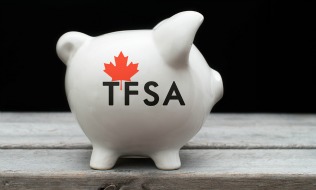

More Canadians are using tax-free savings accounts than registered retirement savings accounts, at 57 per cent compared to 52 per cent, according to a new survey by the Royal Bank of Canada.
It found TFSAs are now the preferred option among Canadians aged 55 or over, a group that has primarily focused on RRSPs in the past. When asked which plan they’d choose if they could only contribute to one, two-thirds (64 per cent) selected TFSAs over RRSPs.
“Canadians are drawn to the flexibility of saving cash in their TFSAs, but it shouldn’t stop there,” said Stuart Gray, director of the financial planning centre of expertise at RBC. “The true advantage of contributing money to your TFSA is to help you reach your goals, not just to have a short-term savings account.
Read: Canadians favour TFSAs over RRSPs: survey
“The magic happens when you invest the money within your TFSA and gain the benefit of compounding, which helps your earnings generate even more earnings. You gain interest not only on your original investment, but also interest on your interest.”
For all TFSA holders, the top five holdings within their plans included: savings accounts and cash (42 per cent), mutual funds (28 per cent), stocks (19 per cent), GICs/term deposits (15 per cent) and exchange-traded funds (seven per cent).
While the survey found the majority (74 per cent) of respondents said they understand TFSAs can contain cash or investments, 43 per cent believe TFSAs are for savings and not for growing money. In line with this savings focus, 65 per cent of TFSA holders said they haven’t withdrawn money from within their account.
Read: Total RRSP contributions rise as number of contributors declines slightly
“Canadians often have money parked in their savings accounts — including their TFSAs — and untouched for long periods of time,” said Gray. “You can take control and look for opportunities to invest these funds so they can work for you. You can build up your savings with financial flexibility to reach your long- and short-term goals.”
Among the third (35 per cent) of survey respondents who said they’ve withdrawn money from their TFSA, the top reasons for doing so included paying off debt (25 per cent), making a large or special purchase (24 per cent), an emergency (20 per cent), paying day-to-day expenses (19 per cent), purchasing something for a home (11 per cent) and buying a home (10 per cent).
Read: Plan sponsors favouring group RRSPs, DPSPs over DC plans
